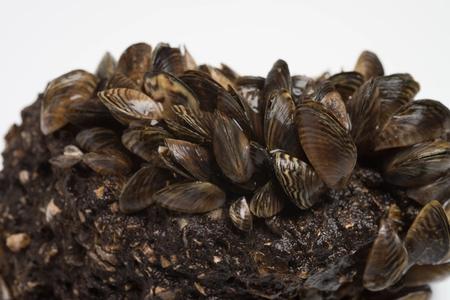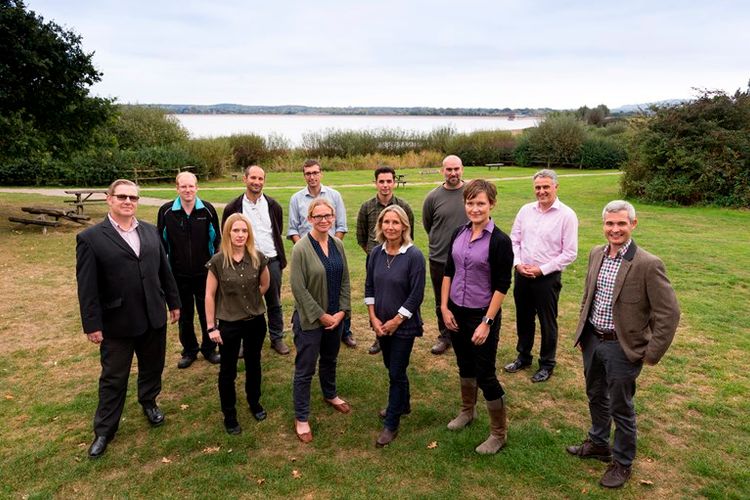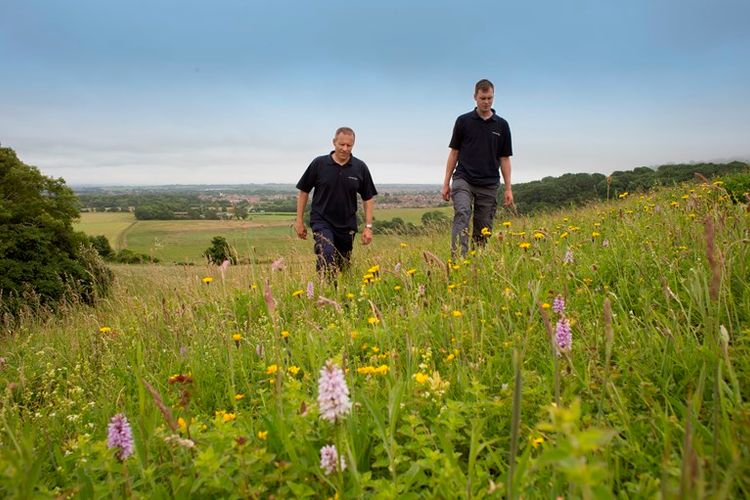We work hard to stop the spread of invasive non-native species (INNS) which threaten our natural world.
Broadly speaking, non-native species are anything which didn't evolve in the UK, including well-loved species such as rabbits and horse chestnuts. But for something to be an invasive non-native species, it has to damage the economy or the environment. In addition to providing 544 million litres of water every day, we own or manage dozens of rare or protected habitats, including Sites of Special Scientific Interest, Areas of Outstanding Natural Beauty, National Parks and nature reserves.
Working alongside partners such as Natural England, the Angling Trust, British Canoe and local wildlife trusts, we carefully manage watercourses, reservoirs and other company-owned sites to protect them from the harm that invasive species can cause.
Some of the most common species we combat are:
- Zebra mussels can clog the inside of water pipes and it has been estimated that the removal of this species alone costs the water industry more than £1 million per year.
- Signal Crayfish carry a disease known as crayfish plague, which is 100% lethal to the native White-Clawed Crayfish if contracted.
- Himalayan Balsam was introduced in the Victorian era as a garden plant but can now be found along riverbanks and ditches where it spreads quickly at the expense of native flowers.
- Rhododendron was also introduced by the Victorians and today is usually found in woodland or heath land habitats. It spreads quickly, smothering rare or precious native plants, which some animals rely upon to survive.
- Giant Hogweed has poisonous sap which can cause severe burns if affected skin comes into contact with sunlight.


Zebra Mussels: Stopping their spread

The water industry is one of the sectors most impacted by aquatic invasive species. Zebra mussels form large colonies that can block pipes and other infrastructure. They also outcompete native animals, which can negatively impact biodiversity.
Zebra mussels are known to be present in Darwell and Bewl reservoirs and at Spray’s Farm Break Pressure Tank. They are also likely present within the raw (untreated) water main between these sites. We currently transfer this untreated water from Darwell reservoir to Hazards Green Water Treatment Works to be cleaned and made into wholesome fresh drinking water.
Although the treatment removes all traces of the zebra mussels, there is a risk that an unplanned release from the untreated water main, such as a leak or burst, could transfer zebra mussels to the environment.
Hazards Green, located just north of the Pevensey Levels Special Area of Conservation and Site of Special Scientific Interest, is home to a diverse community of aquatic plants and animals. The release of an invasive non-native species like zebra mussels could have a devastating impact on the area’s wildlife, underscoring the need for stringent preventive measures.
By installing a new pipeline from Bewl Water Treatment Works to our storage reservoirs in Wadhurst and Rotherfield, we can eliminate the need to transfer raw water between Bewl and Darwell, and from Darwell to Hazard’s Green. Upgrades to Bewl Water Treatment Works will allow us to increase the output of treated water from there, reducing the amount required from the Hazards Green Treatment Works.
Top tips to stop the spead of invasive species
There are three really simple yet important things that people can do to protect the environment from invasive species.
- Anyone using rivers, lakes or reservoirs for activities such as water sports and angling should follow the Check, Clean, Dry procedure. Simply put this means check your equipment and clothing for anything that may be attached, clean it with fresh water and a water-safe disinfectant, then leave it to dry.
- If you are in the countryside, we always ask people to leave the area as they found it - so don't be tempted to pick any flowers or plants as they may belong to an invasive species or even be dangerous.
- When choosing plants for your home or garden, or disposing of those you already have, ask your local garden centre for advice on all aspects of growing, managing and disposing of plants.



